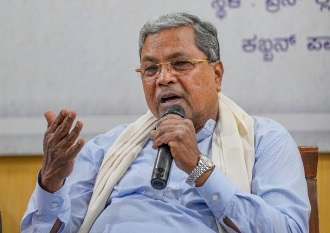There has been a political stir in the state due to the alleged leak of the much awaited caste survey report in Karnataka. The report prepared by the Backward Classes Commission recommends increasing the reservation for the Muslim community from 4% to 8% and the total reservation for other Backward Classes (OBCs) from 32% to 51%. If it is implemented, the total reservation in the state can reach 85%. These include 10% for Economically Weaker Class (EWS) and 24% for Scheduled Castes (AC) and Scheduled Tribes (ST). The leak has caused dissatisfaction in Lingayat, Vokkaliga and other major communities, calling the survey “false” and “inspired by politics”.
According to the report, the Muslim community holds 18.08% in the population of Karnataka, which is Vokkaliga (10.31% and Lingayat is more than 11.09%. OBC has a total population of 4.18 crore (about 70%), while SC has a population of 1.09 crore and ST has a population of 42.81 lakhs. The new category has a 12% reservation for 1A. Communities such as Uppara, Mogavira and Koli have been proposed for 10% for category 2A, 8% for Lingayat and 7% for Vokkaliga.
At the same time, Lingayat and Vokkaliga communities have questioned the accuracy of the survey, claiming that their population has been underestimated, which can weaken their political and social strength. Lingayats have threatened action on the issue, while Vokkaliga leaders described it as part of the “Congress vote-bank policy”. BJP leader R. Ashok termed the survey as “unscientific” and alleged that the Congress prepared it for political gains. “This report is an attempt to create a division among the castes,” he said.
Apart from this, the Congress government has not yet made any official statement on the leak, but Deputy Chief Minister D.K. Shivkumar said that this will be discussed in detail in the special cabinet meeting to be held on 17 April. Chief Minister Siddaramaiah had earlier said that his government is committed to implementing the caste survey. Home Minister God and Minister Zameer Ahmed Khan defended the Muslim quota, saying that it reflects the socio-economic status of the community.
Let us know that the survey, which started in 2014 during Siddaramaiah’s first term, was completed in 2016, but various governments suppressed it. The report of 46 sections prepared at a cost of Rs 169 crore has now been presented under the chairmanship of Jayaprakash Hegde. Experts believe that if these recommendations are implemented, the social and political structure of Karnataka may have a major change, but may face legal challenges.
